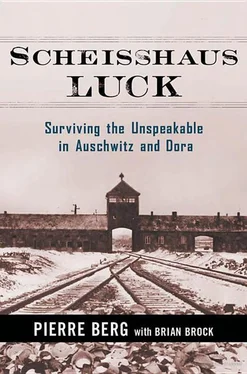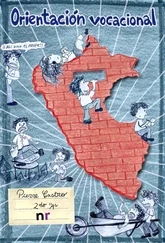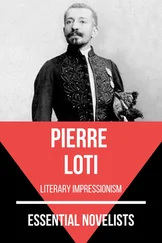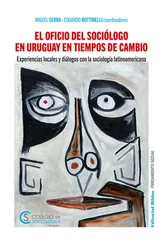Pierre Berg
with Brian Brock
SCHEISSHAUS LUCK
Surviving the Unspeakable in Auschwitz and Dora
To all my comrades who didn’t make it
“Our lives begin to end the day we become silent about things that matter.”
—MARTIN LUTHER KING, JR.

FOREWORD
In 1947, two years after Pierre Berg escaped from a Nazi concentration camp, he began writing down his experiences. His goal was to record his observations of those terrible eighteen months before he forgot them. He had no intention of ever publishing them. None-theless, he gave these recollections a title, Odyssey of a Pajama .
Pierre wrote his memoir in French, but since he was now living in America, he had it translated by a UCLA grad student. He then allowed a couple of people to read his odyssey, and they convinced him that a magazine or book publisher might be interested in his story. In 1954, after two rejection letters, one from the Saturday Evening Post and the other from Harper’s , Pierre put his concentration camp memoir aside and got on with his new life in Los Angeles.
More than fifty years later, I was supplementing my income as a struggling writer by working the concession stand at a playhouse in Beverly Hills. Pierre, now retired, was working as an usher. During a Sunday matinee performance, Pierre and I struck up a conversation on the writer’s life. He informed me that he had written something about his time in the camps. A few days later he handed me a 145-page manuscript. As I read Odyssey of a Pajama for the first time, it was obvious that Pierre’s experiences in the camps were unique and compelling. His voice was frank and was tinged with irony, irreverence, and gallows humor. The situations he found himself in were horrifying, heartbreaking, perverse, and oddly enough, sometimes funny. I was fascinated by his tale and by the young man in it. I believed that Pierre’s story would be a major addition to the Holocaust literature.
We decided to work together to amplify the original manuscript, which we did through both oral and written interviews. One of the problems I found was that many of the events that the young Pierre had written about lacked crucial details that would immerse the reader in that world and in what he had suffered. After my initial interviews, it also became evident that some of the incidents the teenager had endured or witnessed did not appear in the manuscript. It was no surprise to me that the original manuscript was incomplete: It was written as a private journal by a very young man who, in 1947, had no way to judge the significance of what he had just experienced. Also, because his mother was typing the manuscript for him, Pierre had left things out in order to spare her the details of some horrific events he had been involved in.
As Pierre’s collaborator I felt that I had two major responsibilities. First, I needed to ensure that his personality came across on the page. Second, I wanted to be sure that we expressed as vividly as possible the emotional impact of the daily life-and-death struggle in Auschwitz. This latter goal proved to be the more difficult.
It is well known that those who have been brutalized and violated block those memories as a survival mechanism. Pierre was no different. He was resistant to talking about the emotions that gripped him during those eighteen months, saying many times that he didn’t feel anything. But the details he related to me, and his gestures and expressions in regard to those events, said otherwise.
When he was unwilling to delve into the emotions of a specific incident, I would present him with differing emotional points of view, and this would often ignite a dialogue that enabled us to capture his emotional state at that time.
We had many arguments, especially when I aggressively tried to elicit Pierre’s reactions and emotions. I pushed him relentlessly because I thought it was important that his story be told fully. It is a credit to Pierre’s strength of character that he never wavered in his resolve that this story be told completely—and that he never took a swing at me.
Concentration camp inmates all wore triangles of varying colors to distinguish the different classes of prisoners. Pierre’s was a red triangle (political prisoner). His story is vital because it is a reminder that it wasn’t just yellow triangles (Jews) who were rounded up and killed by the Nazis. The Jewish people suffered the most, but Gypsies, Communists, Jehovah’s Witnesses, homosexuals, and other men, women, and children from every country in Europe were imprisoned and perished alongside them. Scheisshaus Luck will remind everyone that none of us—no matter what race, religion, nationality, or political conviction—are immune from becoming a victim of genocide.
♦ ♦ ♦
To be faithful to the spirit of Pierre’s original manuscript, we have purposely steered away from putting the events in a historical context or of adding the elderly Pierre’s thoughts on what he had endured sixty-two years earlier.
This, then, is the autobiographical account of an eighteen-year-old Häftling (inmate).
Brian Brock

PREFACE
If you’re seeking a Holocaust survivor’s memoir with a profound philosophical or poetic statement on the reasons six million Jews and many millions of other unlucky souls were slaughtered, and why a person like myself survived the Nazi camps, you’ve opened the wrong book. I’d be lying if I said I knew the reason, or if I even believed there is a reason, I’m still alive. As far as I’m concerned it was all shithouse luck, which is to say—inelegantly—that I kept landing on the right side of the randomness of life.
I can rattle off the reasons for the Holocaust that I’ve read in books and magazines, and they definitely contain some truth, but for me they fall short of fully explaining how a place as inhumane as Auschwitz could exist. There’s nothing I’ve perused or heard spoken by Holocaust experts that explains the sadistic cancer that sprang from the Nazi masterminds, spread so easily through their SS henchmen, poisoned the Kapos (supervisors) and underlings, then killed and maimed untold millions. When you lived with that cancer day in and day out for eighteen months, no words, no jargon, no hypothesis, no historical context or philosophical noodling or religious rhetoric can adequately explain the glee or stone-cold soullessness in those murderers’ eyes. No philosophical discourse will make sense of the memories of the innocent men I saw hung, beaten to death, shot in the head, or trucked off to Birkenau. Or why the stench of death had to greet us every morning when we woke, befriend us while we slaved for our Nazi masters, then follow us back to camp every night.
All I can give you, I hope, dear reader, is an understanding of what it was like to be an able-bodied teenager torn from family, friends, and home, tossed into a Nazi death camp, and nearly reduced to what the Nazis considered all of us who were tattooed, Untermensch (subhuman).
Pierre Berg

ACKNOWLEDGMENTS
It has been a long odyssey. There were times I wondered if I would live to see my memoir in print. Thankfully, that’s not a worry anymore. Brian and I couldn’t have done it without the guidance and support of countless friends, and our agent, Regina Ryan.
Читать дальше













